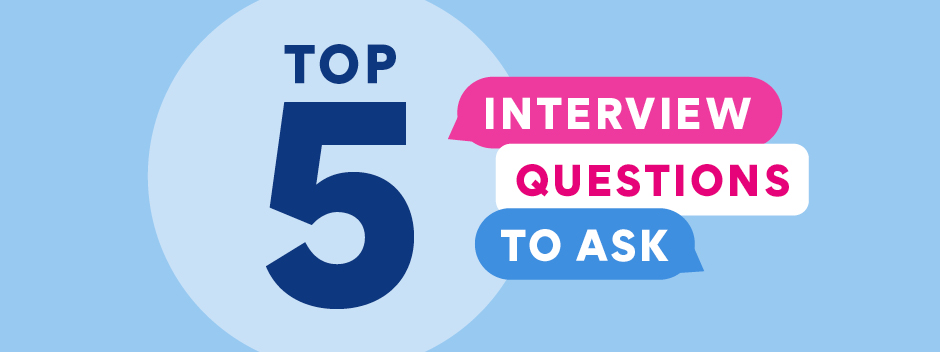A job interview is more than just an opportunity for a candidate to showcase the skills they can bring to your organisation. It’s also the time to uncover whether their values and past behaviours are the right fit for your business and, importantly, what it will take to motivate them to perform to their best.
Taking the time to plan the questions you are going to ask prepares you with an objective mindset and a measurable baseline to rate candidates against the key criteria you are seeking.
The SEEK Interview Builder features a selection of best-practice questions employers and recruiters can use to design their own interview template.
SEEK’s Talent Acquisition Director Sarah Beck and Vocus’s Head of Talent Acquisition Catherine Fitzgerald explain the questions SEEK found were the most commonly asked in an interview and what they can tell you about your potential new employee.
The most-asked interview questions
1) Based on your understanding of this role, which of your skills do you believe will be most valuable to our organisation? (Skills-based)
Being highly skilled in a specific area doesn’t mean a lot if that expertise can’t be harnessed to benefit your business.
Beck says you want the candidate to provide evidence of their experience relating to what is required for the job you are offering.
“Somebody who can succinctly communicate what the role involves and show a clear understanding of your organisation goes a long way to providing you with confidence in their capabilities,” she says.
2) What’s your understanding of the role and why are you interested? (Motivational)
An interview is a two-way street, especially in this highly competitive job market where chances are good that the person you are interviewing is also being lured by your competitors.
Fitzgerald says asking this helps determine whether the candidate has an accurate concept of the role and if they genuinely want to be with your organisation. It’s investigating the motivation behind their application.
“You are looking for someone who can show you they have thought about and prepared for this role, and that your company is at the top of their wish list.”
The best answers, she says, will be able to define the role at a high level, and identify potential opportunities as well as challenges it may bring.
3) Why are you interested in working at this organisation? (Motivational)
This question is about your brand, says Fitzgerald.
It can reveal whether the candidate feels a genuine connection with your brand – are they a customer, will they advocate for your business, or do they just need a job?
Fitzgerald says someone who has researched the company and is motivated by the affinity they feel with your brand is more likely to stick around for the long term.
Beck agrees: “A stand out candidate speaks with a compelling passion, energy and interest that shows they are personally aligned with your core purpose and values.”
4) At times you will be asked to do many things at once. How do you prioritise your tasks? (Behavioural)
In a fast-paced world of email, mobile phones and constant demands, this question can tell a lot about how a person behaves under pressure.
This question, says Fitzgerald, helps you assess if they will be able to cope with the pace of your organisation.
She says you want to know how they differentiate between what’s important and what’s urgent, whether they delegate, and evidence of how, and who, they’ll communicate with if a deadline can’t be met.
5) What parts of your current role do you really love? (Motivational)
If you want an insight into what will motivate your new employee and where their passions lie, this is the question to ask.
Understanding what makes the candidate tick can help you plan how to manage them.
“Sometimes people jump out of the frying pan into the fire,” says Fitzgerald, “so it’s important to understand why they are leaving their job and if this role can fix what they are not getting in their current role.”
But, says Beck, beware the candidate who has nothing good to say.
“Someone who sits in an interview and denigrates the organisation they are working for never bodes well. It’s disrespectful.”
Plan your interview
Beck says while these five questions have proven the most popular, and have a lot to offer, you don’t necessarily want to ask all of them in the same interview – or every time you hire.
SEEK’s Interview Builder can help employers and recruiters put together a strong interview format so they can confidently test for the specific requirements they need in their business.
“The way you interview reflects on your brand,” says Beck.
“In this dynamic world where everyone is competing for talent you want to ensure the candidate walks away feeling great about their experience, even if they aren’t successful.”

